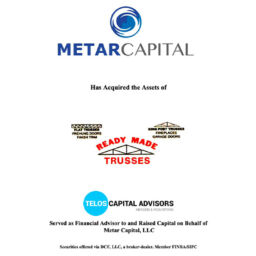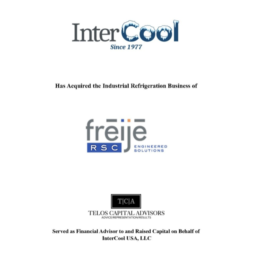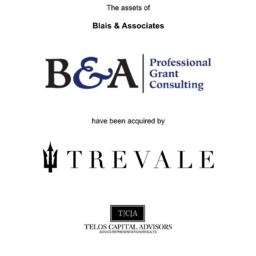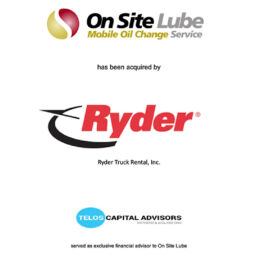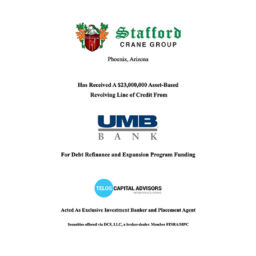
You have decided to sell part of your business. You have hired a qualified investment banker and begun a marketing process. You are ready for the next stage of business ownership: bringing on an investment partner to diversify your assets and create a path to complete exit. Finding the right fit is an inexact science – a combination of due diligence, reference checks, and “gut feel.”
These 10 questions can help sellers find the right match for their personality, business style, and future goals.
Does the private equity firm proactively provide complete references?
A potential partner should offer access to the management of all companies with whom it has worked over the years, whether or not the transactions have gone well. Sellers should be able to choose which references to call. Like a marriage, the dynamics of the relationship can be hard to gauge until you get deeper into it. For the best window into what the investor is really like as a partner, hear a variety of experiences. Talk to companies that experienced steady growth, and those that hit some bumps along the way. Such information also can help set expectations about what might unfold in the years ahead. What is the partner like during good times? How did it handle a downturn? What are its hot buttons?
Are references being checked early enough?
Start reference checking immediately after investor groups have been narrowed to a manageable number of top contenders. A lot of owners make calls only late in the process, during or even after the final LOI (Letter of Intent) stage, and use those references to reinforce a decision they already made, rather than help them make a considered choice. The dialogue gives owners a better sense of ‘who I want to work with’, how each private equity firm supports management, and helps the team prioritize the top criteria that matter.
Are the right questions being asked?
Write down all questions, and make sure none go unanswered. Will they let me run my business? Were they honest and trustworthy and not just looking for a quick return? Were they good business people I could talk to for advice and run issues and ideas by, people who wouldn’t do anything to make my team feel uncomfortable or unsure about the future? Each seller will have a different set of “right” questions depending on his or her style and personal and professional goals. Regardless, everyone should also ask: Would you ever do business with this firm again?
What is the firm’s track record with similarly-sized companies?
This answer is more important than the private equity firm’s prior experience in the specific industry the company inhabits. Regardless of their industry, smaller companies share many overlapping needs as they grow into middle-market businesses. In recapitalizations, private equity firms back strong management teams that are experts in their market segment. Management knows their industry very well, but often needs strategic and financial guidance to scale the business for growth. That’s why learning what the firm has been able to do with other like-sized companies can be telling. Possible questions to ask include: Has the private equity firm done most of its deals in the seller’s revenue size range? Is it “dipping down” or “stretching up” to work with the company? Was its prior fund (if there was one) working with similarly-sized companies?
What does the potential partner offer beyond capital?
In addition to financial resources, what other relevant value-added tools are available to management? For example, can the private equity firm help with strategic planning, management team recruitment, business development or negotiations for add-on acquisitions, and/or with other areas of business-building?
What team will management work with, and is this team empowered to make decisions?
Different private equity firms use different models when staffing deal teams for their investments. It is important to understand in advance what model they are using and how it will work for the seller. Does the deal get passed from a deal generation team to an execution team to operating partners, or does the same team stay with the investment through its entire life cycle? How much authority does this team have, and how quickly can they act when needed? The ability to be thoughtful and decisive can significantly increase the likelihood of getting the transaction past the finish line and can be tremendously helpful through the life of the investment.
Does the firm have a committed fund or does it raise money deal by deal?
Understand, too, whether the investor has capital available to quickly write a check if resources are required for initiatives like add-ons, new equipment purchases, or support capital in tough times, or if the firm will need to raise equity from its own financial backers. In addition, does the firm have enough equity available to provide additional financing support without either overleveraging the seller’s company or missing an opportunity due to limited debt capacity?
What are the firm’s communication style and expectations after the deal closes?
How do communications work between the private equity firm and the portfolio company? Is the reporting process formal or informal? Some firms hold weekly calls or meetings that follow specific agendas. Others operate more ad-hoc, with interim calls as-needed in between board meetings. And speaking of board meetings – are those monthly or quarterly? Find out who management will work with after the deal closes. Will any new faces, including operating executives, be assigned to help?
What does the exit transaction look like?
Get a sense of Phase Two from your reference calls before the ink dries on the current transaction. Try to know how the economics worked out for them. But also, how much influence the sellers had in picking the next partner. How closely they were tied to the business in the next transaction?
Can you see yourself having fun together?
The buyer and seller should genuinely like and respect each other. They will be spending a lot of time together in the years to come and should look forward to developing a strong business relationship and an enduring friendship.
For more information please contact Bernard Carrico, Managing Director @ Telos Capital Advisors, at 214-473-4704 or [email protected]




